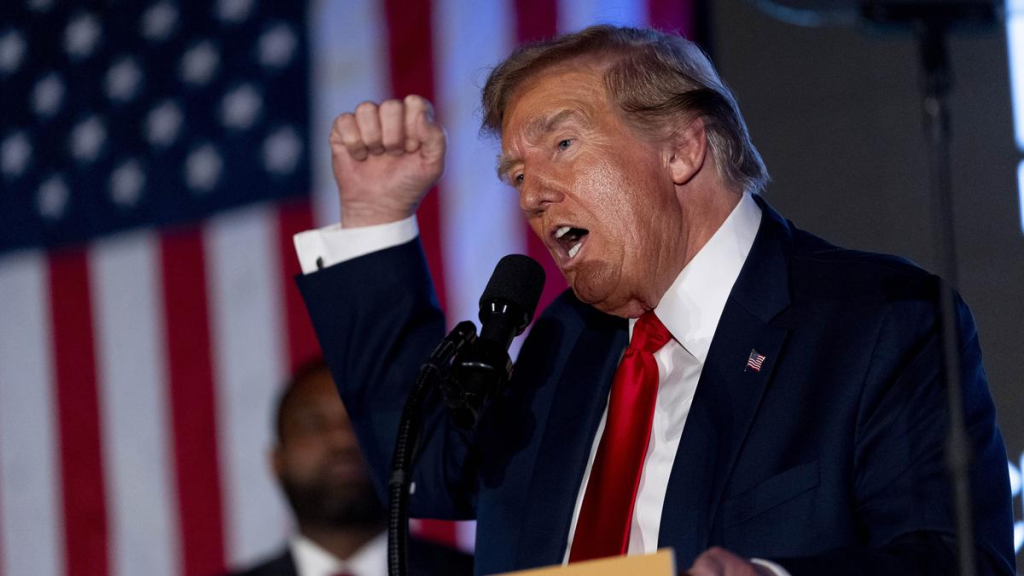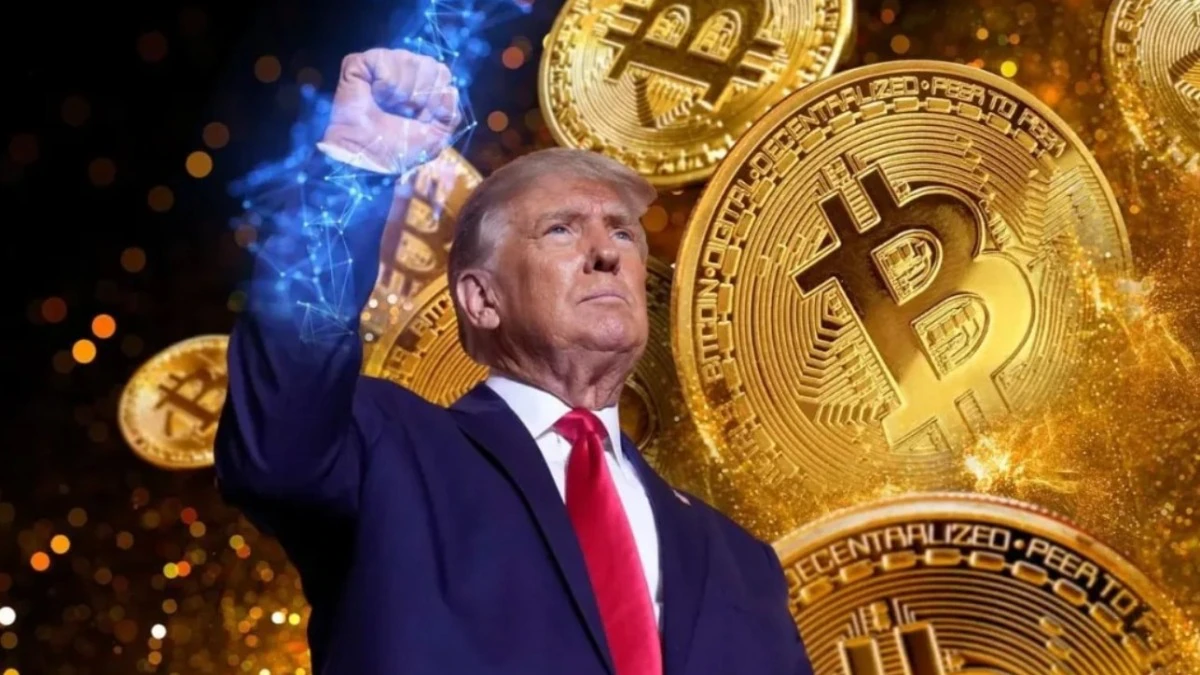WASHINGTON, D.C. — As former President Donald Trump pushes forward with a new wave of tariffs targeting foreign goods, a once-loyal digital constituency is beginning to drift: cryptocurrency investors, traders, and blockchain entrepreneurs—popularly known as the “crypto bros.” Known for their libertarian-leaning views and initial support of Trump’s deregulatory agenda, many in the crypto community are now voicing concerns over how ongoing tariff conflicts are rattling markets and threatening decentralized finance ecosystems.
Tariffs Spark Uncertainty in Financial Markets
Trump’s renewed focus on aggressive trade policy has revived tariffs on Chinese electronics, metals, and other goods. Intended to protect U.S. manufacturers, these moves have triggered retaliatory responses from trade partners and ignited uncertainty across global markets.
For the crypto sector—already volatile by nature—this added instability has become a major source of frustration.
Digital asset prices have swung widely following trade announcements. Bitcoin dropped nearly 8% in a single week last month after Trump’s comments about potentially expanding tariffs to cover semiconductors and tech components crucial to cryptocurrency mining and blockchain infrastructure.
“The market thrives on innovation and open systems,” said Taylor Grant, a blockchain venture capitalist in Miami. “Tariffs don’t just disrupt supply chains—they disrupt investor confidence.”
Concerns Over Mining Equipment and Blockchain Access
One major sticking point is the impact of tariffs on imported computer hardware, especially GPUs and ASIC chips essential for crypto mining. Much of this equipment is manufactured in Asia, and new tariffs have increased import costs significantly.
According to the U.S. International Trade Commission, tariffs on electronics and industrial parts have increased average hardware costs by 12% in the past year. That rise has forced some U.S.-based crypto miners to scale back operations or seek offshore alternatives, raising concerns about the country’s competitiveness in the digital currency race.
“Trump says he’s bringing jobs back, but he’s making it harder for us to compete globally in the blockchain space,” said Kevin Morales, who runs a mid-sized Ethereum mining operation in Texas. “We’re getting priced out.”
Regulatory Confusion Adds to Friction
Beyond tariffs, the Trump administration’s approach to cryptocurrency regulation has left many in the digital asset space questioning its priorities. While Trump has previously spoken favorably of blockchain innovation, his return to office has yet to deliver clear federal guidance for crypto markets.
Industry leaders point to mixed messages coming from agencies like the U.S. Securities and Exchange Commission and Commodity Futures Trading Commission, which continue to battle over how cryptocurrencies should be classified and regulated.
The lack of clarity, combined with trade-related volatility, is making some crypto investors feel abandoned by a political figure they once supported.
“There was hope that Trump’s second term would fast-track crypto adoption,” said Ava Liu, a fintech analyst at a San Francisco-based investment firm. “Instead, we’re seeing market disruption without the policy support we need.”

The Libertarian Rift
The growing rift between Trump and the crypto crowd isn’t just economic—it’s ideological. The crypto community has long embraced principles of decentralization, open networks, and minimal government interference.
Tariff-heavy trade policies, which are rooted in nationalist and protectionist thinking, clash with this worldview.
During Trump’s first term, many libertarian-leaning crypto advocates saw his deregulatory agenda as a net positive. But the current climate has rekindled fears of state overreach and centralized economic control—values antithetical to blockchain’s foundational ethos.
“Tariffs are just taxes under a different name,” said Drew Simmons, a popular crypto YouTuber with over 500,000 followers. “You can’t call yourself pro-freedom and then dictate who Americans can trade with.”
Shift Toward Other Political Voices
Disillusionment is prompting some in the crypto space to explore alternative political alignments. Candidates who embrace crypto-friendly policies—such as advocating for a federal digital assets framework or opposing trade barriers—are gaining traction among younger, tech-savvy voters.
Prominent figures like Sen. Cynthia Lummis (R-WY) and Rep. Patrick McHenry (R-NC), who have sponsored legislation to create clearer guidelines for digital currencies, are being praised for filling the policy void left by Trump’s focus on tariffs.
There’s also growing interest in third-party and independent candidates, especially those who support decentralization, limited government, and monetary freedom—ideals often aligned with crypto philosophies.
Conclusion: A Fractured Relationship
As Trump doubles down on tariffs and trade disputes, his relationship with the crypto world continues to sour. What was once a promising alliance—built on shared disdain for regulatory overreach—has become strained by conflicting agendas and economic fallout.
While Trump still enjoys support from parts of the business and tech communities, his standing among crypto investors and blockchain developers is clearly slipping. Unless the administration pivots toward clearer regulatory support and less disruptive economic policies, this once-reliable base may continue to drift away.
For now, the crypto bros are watching—and waiting—for leadership that truly understands the digital economy they helped build.
Disclaimer – Our team has carefully fact-checked this article to make sure it’s accurate and free from any misinformation. We’re dedicated to keeping our content honest and reliable for our readers.
